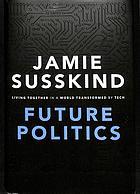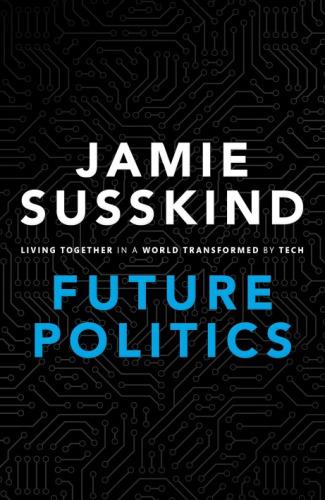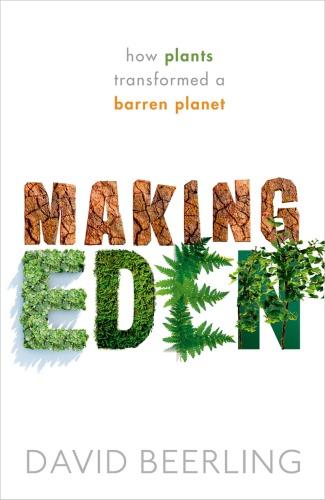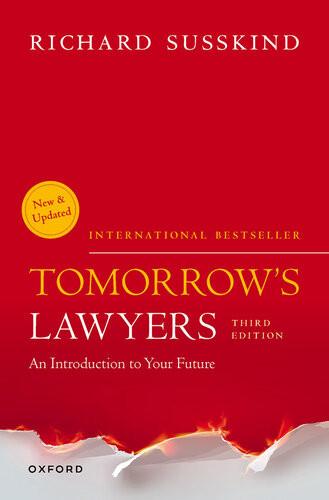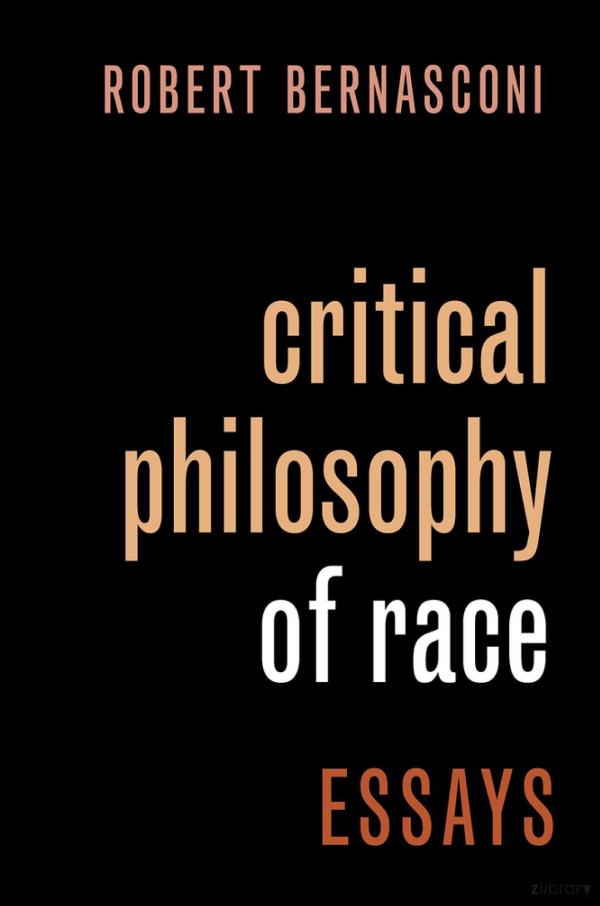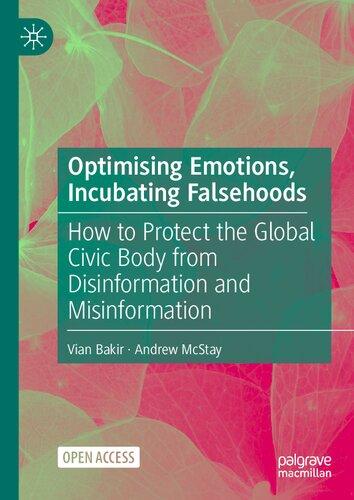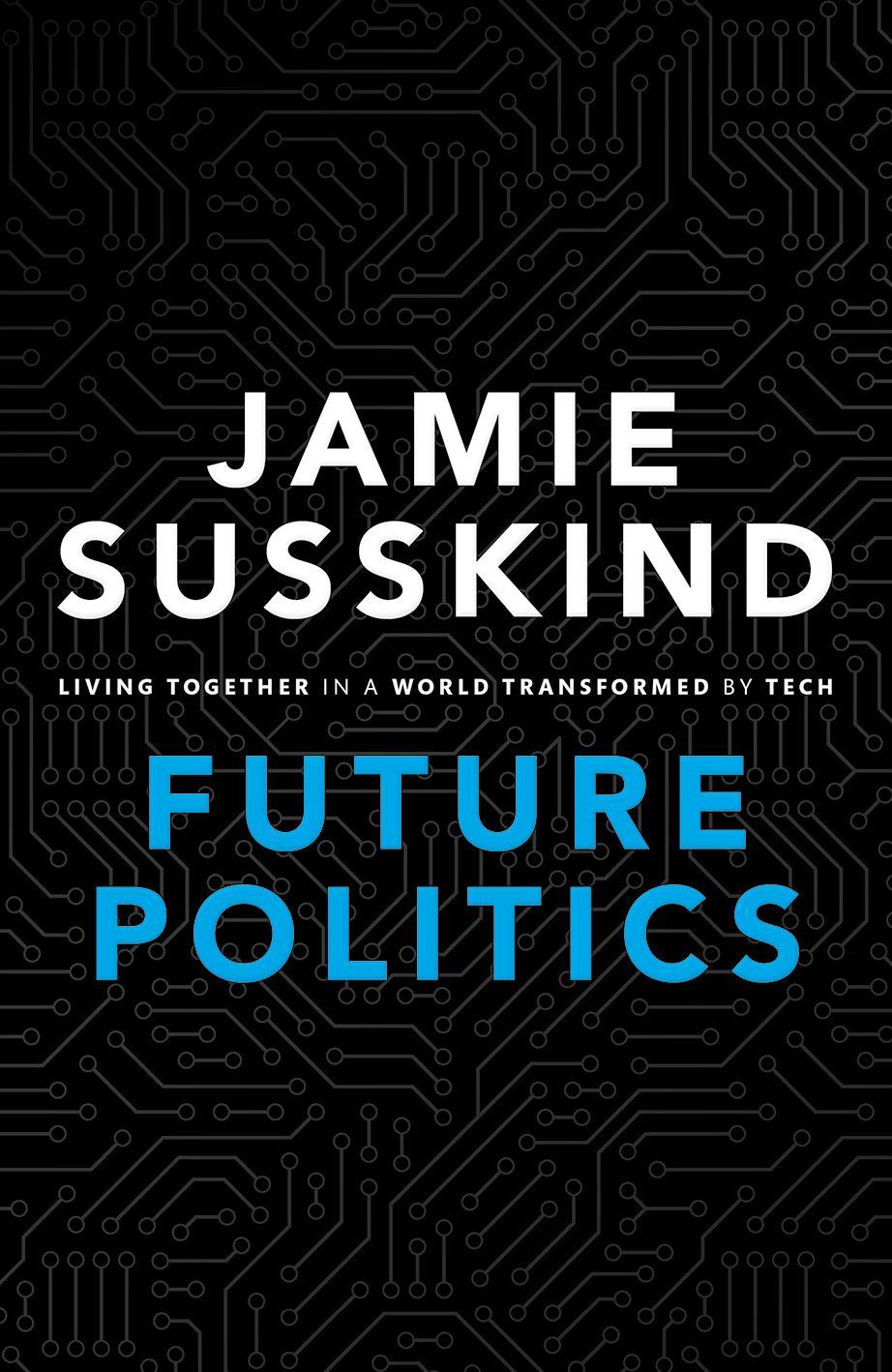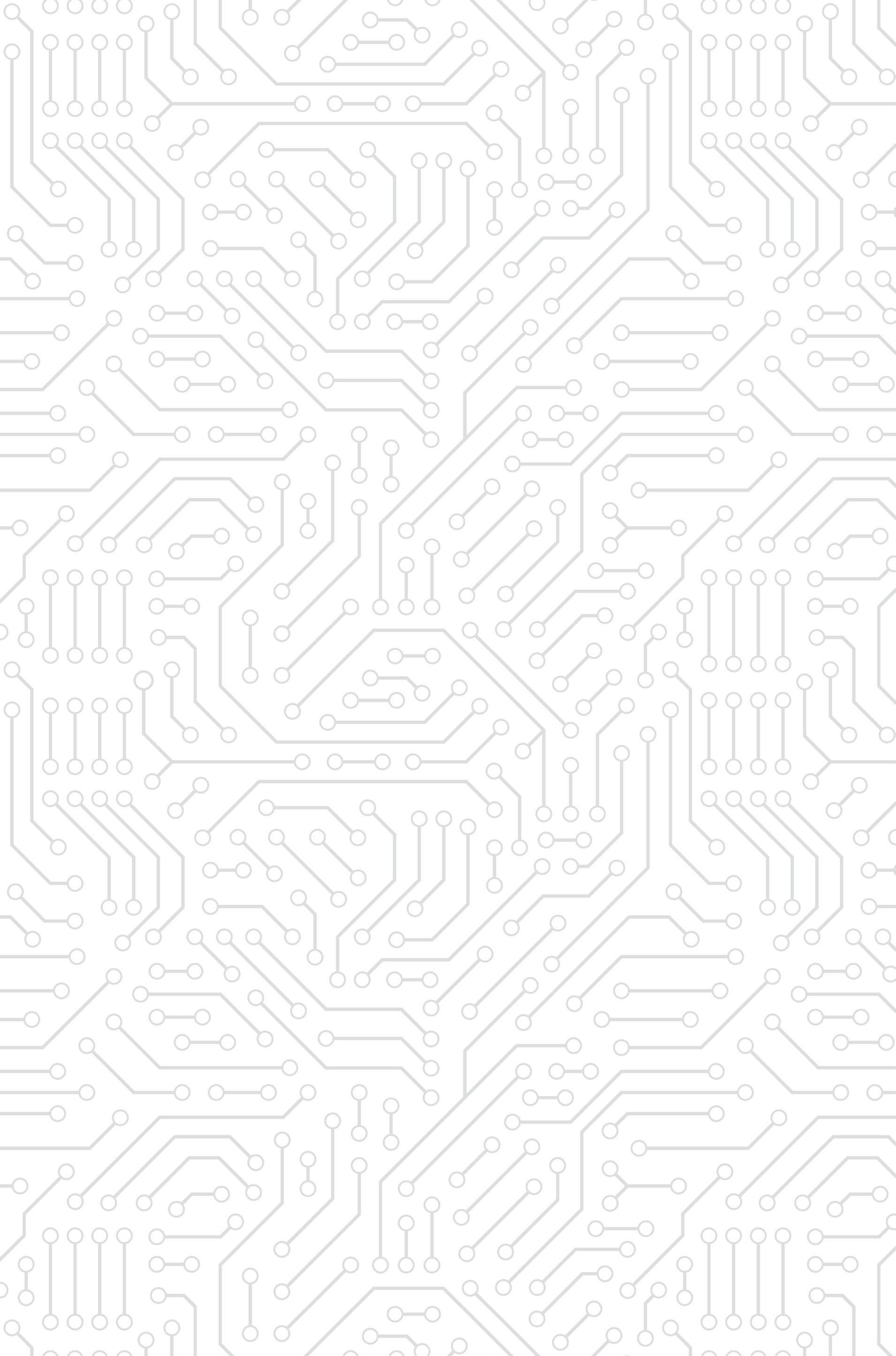Instant digital products (PDF, ePub, MOBI) ready for you
Download now and discover formats that fit your needs...
Future Politics: Living Together in a World Transformed by Tech Jamie Susskind
https://ebookmass.com/product/future-politics-living-together-in-aworld-transformed-by-tech-jamie-susskind/
ebookmass.com
Making Eden: how plants transformed a barren planet First Edition Beerling
https://ebookmass.com/product/making-eden-how-plants-transformed-abarren-planet-first-edition-beerling/
ebookmass.com
Tomorrow's Lawyers: An Introduction to your Future (Third Edition) Richard Susskind
https://ebookmass.com/product/tomorrows-lawyers-an-introduction-toyour-future-third-edition-richard-susskind/
ebookmass.com
Grant (White Knight Security Book 1) Jackie Keswick
https://ebookmass.com/product/grant-white-knight-securitybook-1-jackie-keswick/
ebookmass.com
Making It in the Market - Richard Ney's Low-Risk System for Stock Market Investors 1st Edition Richard Ney
https://ebookmass.com/product/making-it-in-the-market-richard-neyslow-risk-system-for-stock-market-investors-1st-edition-richard-ney/
ebookmass.com
Molybdenum and Tungsten Enzymes - Biochemistry 1st Edition
Russ Hille
https://ebookmass.com/product/molybdenum-and-tungsten-enzymesbiochemistry-1st-edition-russ-hille/
ebookmass.com
Health Policy and Politics: A Nurse’s Guide 6th Edition, (Ebook PDF)
https://ebookmass.com/product/health-policy-and-politics-a-nursesguide-6th-edition-ebook-pdf/
ebookmass.com
Feminist IR in Europe Maria Stern
https://ebookmass.com/product/feminist-ir-in-europe-maria-stern/
ebookmass.com
Critical Philosophy of Race Robert Bernasconi
https://ebookmass.com/product/critical-philosophy-of-race-robertbernasconi/
ebookmass.com
Optimising Emotions, Incubating Falsehoods: How to Protect the Global Civic Body from Disinformation and Misinformation Vian Bakir
https://ebookmass.com/product/optimising-emotions-incubatingfalsehoods-how-to-protect-the-global-civic-body-from-disinformationand-misinformation-vian-bakir/ ebookmass.com
ACKNOWLEDGEMENTS
I could not have written this book without the help of my friends, colleagues, and family.
Most of Future Politics was completed during a Fellowship at Harvard University’s Berkman Klein Center for Internet and Society. The Center is a special place, and its staff and Fellows are a constant source of inspiration. I am also indebted to the staff and members of Littleton Chambers, who have tolerated my absences and supported my work with great patience and loyalty.
I have been lucky to find, in Dominic Byatt, the ideal editor: always insightful, frequently critical, and generally indulgent of my foibles. My agent, Caroline Michel, has looked after me from the beginning and I am always thankful to have her on my side. It has been a pleasure to work with the fine teams at Oxford University Press and Peters Fraser + Dunlop: Tim Binding, Alexandra Cliff, Tessa David, Kate Farquhar-Thomson, Phil Henderson, Dan Herron, Erin Meehan, Laurie Robertson, Sarah Russo, and Olivia Wells. Chris Summerville expertly copy-edited the final text.
I am grateful to Luciano Floridi, Vicki Nash, and Susannah Otter, whose early guidance helped to get the project off the ground. Fred Popplewell’s research was enormously useful. I have benefitted deeply from conversations with Yochai Benkler, Alex CanforDumas, Amber Case, Matt Clifford, David Cox, Primavera De Filippi, Gabriella Fee, Howard Gardner, Josh Glancy, Philip Howard, Laurence Lessig, Andrew Perlman, Michael Sandel, Bruce Schneier, Carina Namih, Beth Simone Noveck, David Weinberger, Owain Williams, Ellen Winner, Tom Woodward, and Jonathan Zittrain. David Wilkins has been an invaluable source of wisdom and counsel.
Suzanne Ashman, James Boyle, Lizzie Gaisman, Nicholas Gaisman, Dorita Gilinski, Philip Howard, and Martha Minow offered invaluable commentary on various drafts, and Ifeoma Ajunwa and Maxine Mackintosh provided feedback that dramatically improved Part V. I will always be grateful to Olivia Wollenberg for her encouragement and advice as the writing process got underway.
Several readers were kind enough to read the manuscript in full: Tony Blair, Gordon Brown, Matt Clifford, Alex Canfor-Dumas, Kim FitzGerald, Matthew Flinders, Howard Gardner, Beeban Kidron, Laurence Mills, Marius Ostrowski, Fred Popplewell, Susannah Prichard, Dov Seidman, Daniel Sleat, Owain Williams, and Tom Woodward. Their many (many) points of criticism have made it a much better book. Throughout, Pavithra Mahesh encouraged me, for better or worse, to write with my own voice. Philippa Greer made a big difference in a short space of time.
The great Matt Orton has been an unfailing source of writerly wisdom, feedback, and motivation. Chris and Diana Orton kindly let me squat in their Edinburgh cottage while I finished writing. If there is any good political theory in these pages, it is down to Simon Caney, who fired my passion for the discipline as an undergraduate and, ten years later, reviewed the manuscript of this book with his customary rigour.
Finally, I wish to thank my family. I am always amazed by how fiercely my mum, Michelle, believes in my work. I would be nowhere without her love and support. She is my surest source of strength and encouragement. My sister Ali has been a rock: I trust her judgement entirely and have leaned on it countless times. Her painstaking labours in the closing stages helped me to get the manuscript over the line (just about) in time.
Writing about the future has become a kind of weird family business for the Susskinds. Some readers will know that my dad, Richard Susskind, has been writing about the impact of technology since
the early 1980s; and that he and my brother Daniel Susskind (an economist) co-authored a book called The Future of the Professions in 2015. If you read that book, you will see the extent of my intellectual debt to them both. Daniel has been my most thoughtful and generous reader, as well as my fiercest supporter.
I do not have the words to describe what I owe to my dad or how grateful I am to him. It’s been the greatest joy and good fortune of my life to have him as my best friend, mentor, and guide. We’ve been in constant conversation for nearly thirty years, and for the last few we’ve mostly been talking about this book. His influence and inspiration are present on every page.
Jamie Susskind London May 2018
COPYRIGHT NOTIFICATIONS
Chapter 2 epigraph: From Technics and Civilization, Lewis Mumford (1934). Copyright © 1934 by Elizabeth M. Morss and James G. Morss.
Used by permission. Courtesy of the estate of Lewis and Sophia Mumford.
Chapter 4 epigraph: From Wind , Sand , & Stars , Antoine de SaintExupery (1939). Reproduced with permission by the Antoine de Saint-Exupéry Estate.
Chapter 7 epigraph: From Nineteen Eighty-Four, George Orwell (1949). Copyright © George Orwell, 1949. Reprinted by permission of Bill Hamilton as the Literary Executor of the Estate of the Late Sonia Brownell Orwell.
Chapter 9 epigraph: From Technics and Civilization, Lewis Mumford (1934). Copyright © 1934 by Elizabeth M. Morss and James G. Morss.
Used by permission. Courtesy of the estate of Lewis and Sophia Mumford.
Chapter 16 epigraph: From Tragic Choices: the Conflicts Society Confronts in the Allocation of Tragically Scare Resources by Guido Calabresi and Philip Bobbitt (1978). Copyright © 1978 by the Fels Center of Government. Used by permission of W.W. Norton & Company, Inc.
Every effort has been made to trace and contact copyright holders prior to publication. If notified, the publisher will be pleased to rectify any errors or omissions at the earliest opportunity.
PART III FUTURE
PART IV FUTURE DEMOCRACY
PART V FUTURE
PART VI FUTURE POLITICS
‘A new political science is needed for a world itself quite new’
Alexis de Tocqueville, Democracy in America (1835)
Introduction
The future stalks us. It is always waiting, barely out of sight, lurking around the corner or over the next rise. We can never be sure what form it will take. Often it catches us entirely unprepared.
Nowadays, many of us share the sense that we are approaching a time of great upheaval.The world seems to be changing faster than we can grasp. Often we struggle to explain political events that would have been unimaginable just a few years ago. Sometimes we don’t even have the words to describe them. Inwardly, we know that this is just the beginning.
The premise of this book is that relentless advances in science and technology are set to transform the way we live together, with consequences for politics that are profound and frightening in equal measure. We are not yet ready—intellectually, philosophically, or morally—for the world we are creating. In the next few decades, old ways of thinking that have served us well for hundreds, even thousands, of years, will be called into question. New debates, controversies, movements, and ideologies will come to the fore. Some of our most deeply held assumptions will be revised or abandoned altogether. Together we will need to re-imagine what it means to be free or equal, what it means to have power or property, and even what it means for a political system to be democratic. Politics in the future will be quite unlike politics in the past.
Politics in the twentieth century was dominated by a central question: how much of our collective life should be determined by the state, and what should be left to the market and civil society? For the generation now approaching political maturity, the debate will be different: to what extent should our lives be directed and controlled by powerful digital systems—and on what terms? This question is at the heart of Future Politics.
In the next few decades, it is predicted, we’ll develop computing systems of astonishing capability, some of which will rival and surpass humans across a wide range of functions, even without achieving an ‘intelligence’ like ours. Before long, these systems will cease to resemble computers. They’ll be embedded in the physical world, hidden in structures and objects that we never used to regard as technology. More and more information about human beings— what we do, where we go, what we think, what we say, how we feel—will be captured and recorded as data, then sorted, stored, and processed digitally. In the long run, the distinctions between human and machine, online and offline, virtual and real, will fade into the background.
This transformation will bring some great benefits for civilization. Our lives will be enriched by new ways of playing, working, travelling, shopping, learning, creating, expressing ourselves, staying in touch, meeting strangers, coordinating action, keeping fit, and finding meaning. In the long run, we may be able to augment our minds and bodies beyond recognition, freeing ourselves from the limitations of our human biology.
At the same time, however, some technologies will come to hold great power over us. Some will be able to force us to behave a certain way, like (to take a basic example) self-driving vehicles that simply refuse to drive over the speed limit. Others will be powerful because of the information they gather about us. Merely knowing we are being watched makes us less likely to do things perceived as
shameful, sinful, or wrong. Still other technologies will filter what we see of the world, prescribing what we know, shaping the way we think, influencing how we feel, and thereby determining how we act.
Those who control these technologies will increasingly control the rest of us.They’ll have power, meaning they’ll have a stable and wideranging capacity to get us to do things of significance that we wouldn’t otherwise do. Increasingly, they’ll set the limits of our liberty, decreeing what may be done and what is forbidden. They’ll determine the future of democracy, causing it to flourish or decay. And their algorithms will decide vital questions of social justice, allocating social goods and sorting us into hierarchies of status and esteem.
The upshot is that political authorities—generally states—will have more instruments of control at their disposal than ever before, and big tech firms will also come to enjoy power on a scale that dwarfs any other economic entity in modern times. To cope with these new challenges, we’ll need a radical upgrade of our political ideas. The great English philosopher John Stuart Mill wrote in his Autobiography of 1873 that, ‘no great improvements in the lot of mankind are possible, until a great change takes place in the fundamental constitution of their modes of thought.’1
It is time for the next great change.
The Next Great Change
We already live in a time of deep political unease. Every day the news is of bloody civil war, mass displacement of peoples, ethnic nationalism, sectarian violence, religious extremism, climate change, economic turbulence, disorienting globalization, rising inequality, and an array of other challenges too dismal to mention. It seems like the world isn’t in great shape—and that our public discourse has sunk to the occasion. Political élites are widely distrusted
and despised. Two recent exercises in mass democracy in the English-speaking world, the 2016 US presidential election and UK Brexit referendum, were rancorous even by the usual unhappy standards, with opposing factions vying not just to defeat their rivals but to destroy them. Both were won by the side that promised to tear down the old order. Neither brought closure or satisfaction. Increasingly, as Barack Obama noted at the end of his presidency, ‘everything is true, and nothing is true’.2 It’s getting harder for ordinary citizens (of any political allegiance) to separate fact from fraud, reality from rumour, signal from noise. Many have given up trying. The temptation is to hunker down and weather the present storm without thinking too hard about the future.
That would be a mistake.
If mainstream predictions about the future of technology are close to the mark, then the transformation on the horizon could be at least as important for humankind as the industrial revolution, the agricultural revolution, or even the invention of language. Many of today’s problems will be dwarfed by comparison. Think about the effect that technology has already had on our lives—how we work, communicate, treat our illnesses, exercise, eat, study, and socialize—and then remember that in historical perspective, the digital age is only a few seconds old. Fully 99.5 per cent of human existence was spent in the Palaeolithic era, which began about 3 million years ago when humans began using primitive tools. That era ended about 12,000 years ago with the last ice age.3 During this long twilight period, people noticed almost no cultural change at all. ‘The human world that individuals entered at birth was the same as the one they left at death’.4 If you consider that the earliest human civilizations emerged some 5,000 years ago, then the seventy or so years that we have lived with modern computing machines, the thirty or so we have had the world wide web, and the decade we’ve spent with smartphones don’t seem very long at all. And while time passes linearly, many developments in
digital technology are occurring exponentially, the rate of change accelerating with each passing year.
We have no evidence from the future, so trying to predict it is inherently risky and difficult. I admire those who try to do so in a rigorous way, and I have borrowed extensively from their work in this book. But to be realistic, we should start by acknowledging that such predictions often badly miss the mark. Much of the future anticipated in these pages will probably never come to pass, and other developments, utterly unforeseen, will emerge to surprise us instead. That said, I believe it is possible to make sensible, informed guesses about what the future might look like, based on what we know of the current trends in science, technology, and politics. The biggest risk would be not to try to anticipate the future at all.
The story is told of an encounter between the Victorian statesman William Gladstone and the pioneering scientist Michael Faraday. Faraday was trying to explain his groundbreaking work on electricity to Gladstone, but Gladstone seemed unimpressed. ‘But what use is it?’ he asked, with growing frustration; ‘What use is it?’
‘Why sir,’ replied Faraday, reaching the end of his patience, ‘there is every possibility that you will soon be able to tax it.’
Many innovators, like Faraday, find it hard to explain the social and practical implications of their work. And the rest of us, like Gladstone, are too often dismissive of technologies we don’t yet understand. It can be hard to see the political significance of inventions that, at first glance, seem to have nothing to do with politics. When confronted with a new gadget or app, we tend not to think first of all about its implications for the political system. Instead we want to know: what does it do? How much does it cost? Where can I get one? This isn’t surprising. In general, technology is something we encounter most often as consumers. But this rather narrow attitude now needs to change. We must apply the same scrutiny and scepticism to the new technologies of power that we have
always brought to powerful politicians. Technology affects us not just as consumers but as citizens. In the twenty-first century, the digital is political.
This book is partly for Gladstones who want to understand more about technology and partly for Faradays who want to see more clearly the political significance of their work. But mainly it’s for ordinary citizens who want to understand the future a bit better— so if nothing else they can hold the Gladstones and the Faradays to account.
Philosophical Engineers
Consider the following passage:
Here’s to the crazy ones. The misfits. The rebels. The troublemakers. The round pegs in the square holes. The ones who see things differently. They’re not fond of rules. And they have no respect for the status quo. You can quote them, disagree with them, glorify or vilify them. About the only thing you can’t do is ignore them. Because they change things. They push the human race forward. And while some may see them as the crazy ones, we see genius. Because the people who are crazy enough to think they can change the world are the ones who do.
These are not the words of a politician. They’re from the voiceover to ‘Think Different’, a 1997 Apple advertisement featuring iconic footage of rebels including Mahatma Ghandi and Martin Luther King. The ad embodies a worldview, widely held among tech entrepreneurs, that their work is of philosophical as well as commercial importance. ‘It is commonplace in Silicon Valley,’ explains Jaron Lanier, ‘for very young people with a startup in a garage to announce that their goal is to change human culture globally and profoundly, within a few years, and that they aren’t ready yet to worry about money, because acquiring a great fortune is a petty
matter that will take care of itself.’5 There is something attractive about this way of thinking, partly because it suggests that tech companies might not be as rapacious as they are sometimes made out to be. And the basic premise is right: digital technologies do indeed have an astounding capacity to change the world. Compare the following statements:
‘The philosophers have only interpreted the world in various ways; the point is to change it.’
‘We are not analysing a world, we are building it.’
The first is from Karl Marx’s 1845 Theses on Feuerbach 6 It served as a rallying cry for political revolutionaries for more than a century after its publication. The second is from Tim Berners-Lee, the mild-mannered inventor of the World Wide Web.7 Marx and Berners-Lee could scarcely be more different in their politics, temperament, or choice of facial hair. But what they have in common—in addition to having changed the course of human history—is a belief in the distinction between making change and merely thinking about it or studying it. On this view, far from being a spectral presence out of our control, the future is something we design and build.
‘We are not experimental philosophers,’ says Berners-Lee, ‘we are philosophical engineers.’8 It’s a practical and hands-on way of looking at life, one more familiar to builders and inventors than to tweedy academics or beturtlenecked philosophers. It also happens to be the defining mindset of our age. Today, the most important revolutions are taking place not in philosophy departments, nor even in parliaments and city squares, but in laboratories, research facilities, tech firms, and data centres. Most involve developments in digital technology.Yet these extraordinary advances are taking place in a climate of alarming cultural and intellectual isolation. With a few exceptions, there is a gulf between the arts
and the sciences. Political philosophy and social policy rarely appear in degree programmes for science, technology, engineering, and mathematics. And if you ask the average liberal arts student how a computer works, you are unlikely to get a sophisticated response.
In tech firms themselves, few engineers are tasked with thinking hard about the systemic consequences of their work. Most are given discrete technical problems to solve. Innovation in the tech sector is ultimately driven by profit, even if investors are prepared to take a ‘good idea first, profits later’ approach. This is not a criticism: it’s just that there’s no reason why making money and improving the world will always be the same thing. In fact, as many of the examples in this book show, there’s plenty of evidence to suggest that digital technology is too often designed from the perspective of the powerful and privileged.
As time goes on, we will need more philosophical engineers worthy of the name. And it will become even more important for the rest of us to engage critically with the work of tech firms, not least because tech working culture is notorious for its lack of diversity. Roughly nine out of every ten Silicon Valley executives are men.9 Despite the fact that African-Americans make up about 10 per cent of computer science graduates and 14 per cent of the overall workforce, they make up less than 3 per cent of computing roles in Silicon Valley.10 And many in the tech community hold strong political views that are way outside the mainstream. More than 44 per cent of Bitcoin adopters in 2013, for instance, professed to be ‘libertarian or anarcho-capitalists who favour elimination of the state’.11
As I will argue, we put so much at risk when we delegate matters of political importance to the tiny group that happens to be tasked with developing digital technologies at a given time. That’s true whether you admire the philosophical engineers of Silicon Valley or you think that most ‘tech bros’ have the political sophistication
of a transistor. We need an intellectual framework that can help us to think clearly and critically about the political consequences of digital innovation. This book hopes to contribute to such a framework, using the ideas and methods of political theory.
The Promise of Political Theory
The purpose of philosophy, says Isaiah Berlin, is always the same: to assist humans ‘to understand themselves and thus operate in the open, and not wildly, in the dark.’12 That’s our goal too. Political theory aims to understand politics through the concepts we use to speak about it.13 What is power? When should freedom be curtailed and on what basis? Does democracy require that everyone has an equal ability to shape the political process? What is a just distribution of society’s resources? These are the sorts of questions that political theorists try to answer. The discipline has a long and rich history. From Plato and Aristotle in the academies of ancient Greece to Thomas Hobbes and Jean-Jacques Rousseau in the tumult of early modern Europe, to the giants of twentieth-century political thought like Hannah Arendt and John Rawls, western political thinkers have long tried to clarify and critique the world around them, asking why it is the way it is—and whether it could or should be different. For several reasons, political theory is well-suited to examining the interplay of technology and politics. First, the canon of political thought contains wisdom that has outlived civilizations. It can shed light on our future predicaments and help us to identify what’s at stake. We’d be foolish not to plunder the trove of ideas already available to us, even if we ultimately decide that some of those ideas need an upgrade or a reboot. Political theory also offers methods of thinking about the world that help us to raise the level of debate above assertion and prejudice.

